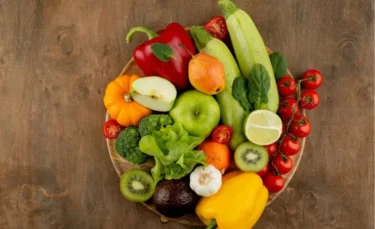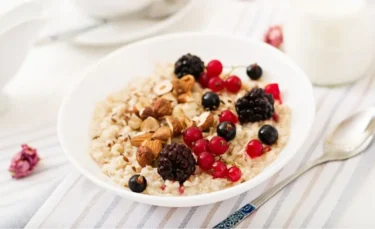When feeling low on energy or experiencing tiredness, many people instinctively reach for caffeinated beverages or processed snacks in the hope of feeling more alert. Options such as a cup of coffee, an energy drink, a granola bar, or a sugary treat may seem appealing in such moments. However, while these items may offer a temporary sense of increased alertness, they are often followed by a drop in energy levels, potentially leaving one feeling more fatigued than before.
Choosing balanced, nutrient-rich meals and snacks, rather than highly processed or sugar-laden alternatives, may help support more consistent energy levels throughout the day. Healthcare professionals often encourage thoughtful food choices as part of a broader lifestyle approach to managing tiredness and promoting general health.
Every individual is unique, and each person’s body may respond differently to various factors. However, scientific research over the years has identified several common contributors to feelings of fatigue. If none of the points mentioned resonate with your personal circumstances, there is no cause for concern. Your experience of tiredness may be due to other reasons that are not included in this list, many of which can often be identified and managed with appropriate guidance and care.
Makhana (fox nuts) is a nutrient-dense food that may help support energy levels as part of a balanced diet. Some preliminary research and traditional use suggest potential benefits, though more studies are needed.
Dr. Siddharth Gupta, B.A.M.S, M.D (Ayu)
Let us now explore a list of 12 foods that may help support energy levels and contribute to reducing feelings of fatigue as part of a healthy, balanced diet:

Do not overlook the benefits of a bowl of salad or a serving of fruits. Fresh fruits and vegetables are rich in vital nutrients and can play a valuable role in supporting metabolism and maintaining steady energy levels as part of a balanced diet3. Generally, the fresher the fruit or vegetable, the greater its nutritional value. These foods may help provide a more sustained release of energy, which can support the body in managing both mental and physical tasks. Including fresh produce in the daily diet is considered beneficial for overall well-being and may help reduce feelings of tiredness when combined with other healthy lifestyle practices.

A cup or two of coffee each day is generally acceptable, but relying on coffee hourly to maintain energy can be harmful to health. Instead, consider alternatives such as fresh fruit juices, milkshakes, green tea, or smoothies. These beverages provide nutritious options that may help support sustained energy levels.

Many people skip breakfast to gain a little extra sleep or opt for less nutritious choices such as bagels, doughnuts, or high-calorie snacks. To help maintain stable energy levels throughout the day, it is advisable to choose breakfasts like oatmeal or wholegrain options such as whole-wheat pancakes, multigrain sandwiches, or quinoa. These foods are rich in quality carbohydrates that provide sustained fuel for the brain and muscles, supporting efficient functioning and contributing to the maintenance of energy1.

If you feel tired between meals, healthy snacking options include nuts and seeds such as almonds, walnuts, chia seeds, flax seeds, and pistachios. Sunflower seeds, Brazil nuts, hazelnuts, pecans, and pumpkin seeds are also beneficial choices. These foods provide essential nutrients, fibre, and a gentle boost of energy. Chia seeds, often referred to as a ‘runner’s food,’ are traditionally believed to support endurance and physical performance. Many nuts are rich in magnesium, potassium, and omega-3 fatty acids, which have antioxidant properties. Including these nutrient-dense snacks as part of a balanced diet may help support overall energy levels4.

Proteins play an important role in supporting energy levels. Foods such as beans, tofu, cottage cheese, and sprouts are good sources of protein and contain nutrients like magnesium, which may help maintain consistent energy throughout the day. Including whole eggs or egg whites, as well as lean meats such as fish and chicken, can further contribute to a balanced, protein-rich diet that supports overall well-being5.

Mushrooms are a valuable source of energy, containing protein and fibre along with essential nutrients such as folate and B vitamins, including riboflavin, niacin, and pantothenic acid. These nutrients support cellular function and contribute to overall vitality6. Mushrooms can be enjoyed in salads, sandwiches, or as a snack on their own.

When feeling tired, dehydration is often overlooked. Water supports the body’s optimal functioning without adding calories and is an excellent choice to help maintain energy levels. It is generally recommended to consume around two litres of water daily to support overall well-being7.

Bananas are widely regarded as a nutritious food that may help support energy levels. They are rich in potassium, vitamins, and minerals, and are an affordable and readily available source of nutrition worldwide. Bananas can be enjoyed on their own, in smoothies, or incorporated into milkshakes as part of a balanced diet8.

Sweet potatoes are a healthier alternative to regular potatoes when seeking quality carbohydrates to support bodily functions. They are high in fibre and rich in potassium, which helps maintain electrolyte balance and may contribute to healthy blood pressure levels. By supporting the body’s relaxation response, potassium can aid in managing stress and feelings of fatigue9.

Tea contains less caffeine than coffee and includes compounds such as (-)-Epigallocatechin-3-gallate, which have been associated with supporting energy levels. However, it is advisable to avoid consuming tea close to bedtime, as the caffeine content may interfere with sleep10.
Some studies indicate that Kokum sharbat may support general well-being and help with feelings of tiredness, particularly during warmer months. However, further research is needed to confirm these effects.
Dr. Rajeev Singh, BAMS
A good night’s sleep, eating meals on time, and making healthy choices that support sustained energy can significantly contribute to feeling energetic and active. Maintaining a balanced lifestyle remains the most effective way to manage tiredness in today’s fast-paced world. Replacing processed and junk foods with nuts, whole grains, and other nutrient-rich options may help support your energy levels. If fatigue or low energy persists, it is important to consult a healthcare professional.
Disclaimer: The information provided here is for educational/awareness purposes only and is not intended to be a substitute for medical treatment by a healthcare professional and should not be relied upon to diagnose or treat any medical condition. The reader should consult a registered medical practitioner to determine the appropriateness of the information and before consuming any medication. PharmEasy does not provide any guarantee or warranty (express or implied) regarding the accuracy, adequacy, completeness, legality, reliability or usefulness of the information; and disclaims any liability arising thereof.